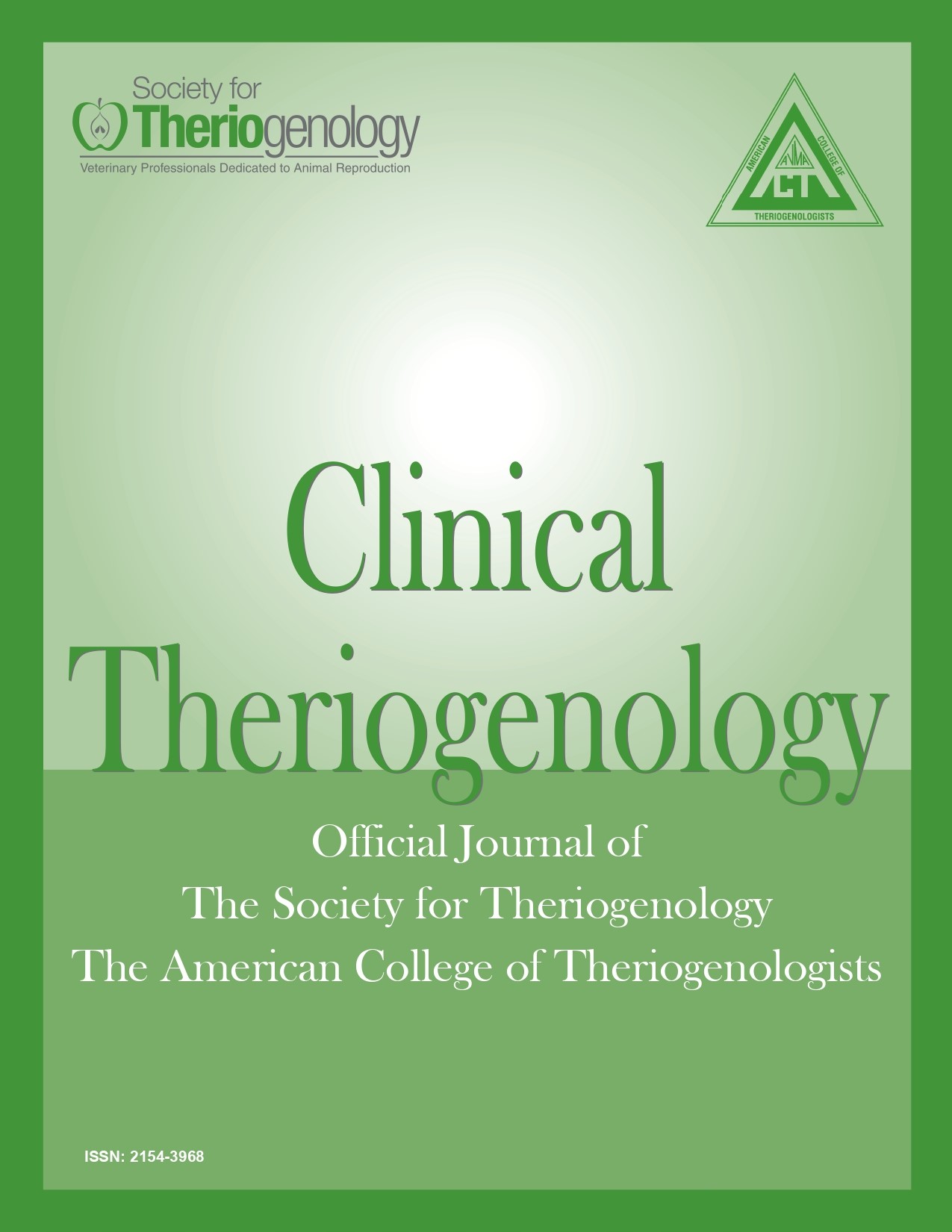Sample handling has minimal effect on blood progesterone concentrations in jennies
Abstract
Consistency of assay results is important for practitioners and investigators. In this context, for progesterone assays, appropriate handling and processing of blood samples is critical. Objective was to compare progesterone assay results from jennies on the island of St. Kitts in Eastern Caribbean from samples subjected to a variety of time and temperature treatments. Five blood samples drawn via jugular venipuncture from 7 jennies at various stages of estrous cycle were randomly assigned to various treatments prior to storage at -80°C and subsequently thawed and assayed. Handling methods were: immediate placement of blood in plain vacutainer tubes on ice for 1 hour (Tr1); 1 hour of clot time before placing on ice for 24 hours (Tr2); 1 hour of clot time at room temperature followed by serum separation and freezing (Tr3); allowing 24 hours at room temperature before serum separation (Tr4); and 1 hour at room temperature for blood collected in an EDTA tube before plasma separation (Tr5). Time and temperature treatment of samples used in this study did not influence progesterone assay results.
Downloads

This work is licensed under a Creative Commons Attribution-NonCommercial 4.0 International License.
Authors retain copyright of their work, with first publication rights granted to Clinical Theriogenology. Read more about copyright and licensing here.





